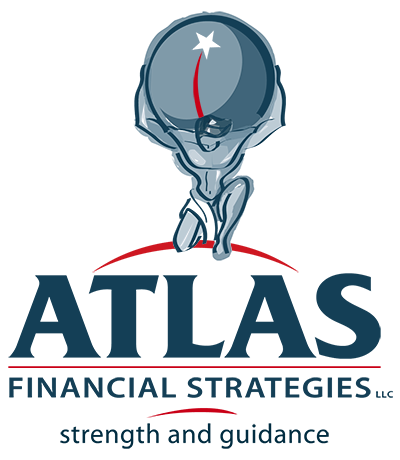- Our Process
- Video Learning Library
- Third Party Resources
- In the News
- Contact
- Investment Team
- Informational Guides
- Client Forms
- Our Firm
- I Just Sold My Business—Now What?
- How to Delay Withdrawals on Your Retirement Accounts
- Blog
- Investment Management
- Preparing Your Business for Sale: Navigating Due Diligence
- The Nautilus Group®
- Special Needs Planning
- Navigating Income Tax
- Life plan for your business®
- What You're Failing to Consider About Your Future Part I: Business Owners
- What You're Failing to Consider About Your Future Part II: Retirees
- What You're Failing to Consider About Your Future Part III: Young Professionals
- How Much Life Insurance Do I need?
- What You Should Know About Your Emergency Fund
- How Pre- and Post-Tax Contributions Affect Your Retirement
- Should You Do a Roth Conversion?
- Managing Debt: The Snowball vs. The Avalanche
- Your Extra Cash: Is It Better to Pay Off Debts or Invest More Money?
- Student Loans: What's the Best Way to Pay Them Off?
- Maximizing Your Money: Find the Most Efficient Use of Your Dollar
- Planning Post-Pandemic: Survival Tips for Business Owners
- Preparing Your Business for Sale: Are You Ready?
- Preparing Your Business for Sale: Pre-Sale Task List
- Preparing Your Business for Sale: Questions to Ask Potential Buyers
- Preparing Your Business for Sale: What to do When Things Get Serious
- When a Retirement and Legacy Arrangement (RALA) Makes Sense for You
- Know Your Numbers: The Importance of Creating Cash Management Systems Before Growth
- Tax Strategies for Business Owners
- Your Growing Business: Hiring the Right People
- Creating an Emergency Succession Plan to Protect Your Business
- Estate Planning: Equal Isn't Always Fair
- What’s the Greatest Gift You Can Leave Your Family? A Plan for Future Financial Success
What You Should Know About Your Emergency FundDo I Need an Emergency Fund?Part of creating a sound financial plan involves protecting yourself from potential risks. Most people appreciate the comfort of knowing they have a little something extra stashed away “just in case,” but some people might question the necessity of an emergency fund. After all, wouldn’t it be better to allocate more cash toward investments that earn substantial gains over time? The short answer is, “no.” If you allocate all your extra cash to investments (and don’t keep any in a personal savings account), you put yourself at the mercy of the market. If we encounter a recession and your investments drop 30 or 40 percent and then you get laid off, what’s your next step? Do you sell your investments at a 30-40 percent loss? Obviously, that’s not ideal. It might not be exciting to keep cash in an account that doesn’t earn a substantial profit, but if 2020 taught us anything, it’s that nothing is guaranteed. No job, investment, or life plan is completely under your control. But by allocating a specific amount of money to an account you can access at any time, you can establish wiggle room for your finances in case you encounter unexpected expenses. If you receive a substantial medical bill your insurance doesn’t cover, your aging parents need long-term care support, or you lose your job, your emergency fund can provide much-needed relief that your standard income or insurance might not be able to. By creating an emergency fund, you establish what is essentially a personal insurance policy that you can control. How Much Should I Keep in an Emergency Fund?If you want to make the most of your money and create a safeguard for unexpected expenditures, we recommend saving three to six months’ worth of living expenses in your emergency fund. If you’re the sole provider for your household, six months is the safest bet—in the event you lose your job, your emergency fund will likely be your primary source of cashflow, and you might need six months to find a new source of income. If you have a dual-income household, you can get away with saving closer to three months of expenses, since you have the additional support of your partner’s income in a financial emergency. When calculating your living expenses, be sure to account for everything you spend, not just your fixed bills. On top of your mortgage and car payments, you’ll need to think about how much money you spend on gas, food (both groceries and eating out), entertainment, etc. Of course, some of these are expenses you can cut back on, but it can be difficult to change your spending habits on short notice. Should I “Pad” My Emergency Fund?To a certain extent, the amount you save in an emergency fund can vary according to what makes you comfortable. If you and your spouse want to save five months’ worth of expenses rather than three, great. But it’s important to note—extra cash in a savings account can only do you so much good in the long run. If you’re tempted to save closer to a year’s worth of expenses in your emergency fund, look at it this way: a high-yield savings account will typically earn about 0.5 percent in interest. If the inflation rate is 2 percent, that means you’re essentially losing 1.5 percent over time. Some people don’t think about this because it’s an invisible loss—your dollar amount doesn’t change—but you’re still losing money. So, once you have six months’ or so worth of expenses in your emergency fund, it’s best to allocate any additional cash to paying off debts or investing in your future. Where Should I Put My Emergency Fund?Typically, we advise clients to save their emergency fund in a third account, separate from your regular savings and checking account. If you combine your emergency fund with your regular savings account, there’s no clear delineation between the two sets of funds, which can make it difficult to keep track of. The last thing you want to do is spend your emergency fund “accidentally” because you forgot it was tied to your savings account. And of course, there’s the old “out of sight, out of mind” rule. If it’s not mixed with your everyday funds, you’re less likely to spend it when you shouldn’t. Find a solid, high-yield savings account (today, that’s typically one that earns about half a percent—not sexy, but better than the 0.04 percent you’d earn with a regular savings account), put away three to six months of your expenses, and forget about it. How do I rebuild my Emergency Fund?While no one loves to use their emergency fund, you’ll be glad it’s there when you need it, and it’s unlikely you won’t tap into the cash at some point. You might have to replace your HVAC unit, your adult children could find themselves in a financial pickle you want to assist with, or you might get laid off—ultimately, you never know what could happen, which is why it’s important to plan for the unexpected. If you must spend your emergency fund, try to rebuild it as soon as possible. That could take any amount of time, depending on your current financial situation. There are a few ways you can give your savings a boost to rebuild your emergency fund more efficiently—you can reduce your expenses (cut back on eating out, try at-home workouts instead of paying for a gym membership, hold off on purchases like new clothes or expensive haircuts), reduce your retirement contributions for a time, or even take on a side-gig if you have the time. The best method will depend on your phase of life and your goals, and we’re happy to discuss some ideas with you if you need guidance. If you’d like to learn more about how to best prepare your finances for the unexpected, we’d love to help! Give us a call at (850) 542-4803 or send us an email to schedule a consultation. |
 Quick Links
Quick Links
